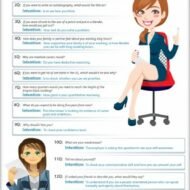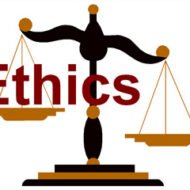Posted by Managementguru in Human Resource, Interview Questions, Strategy, Training & Development
on Jun 5th, 2014 | 0 comments

How do you answer “What is Your Greatest Weakness?” Job Interview Question or JIQ #2 “Our greatest weakness is that, We are unwilling to accept our weaknesses.” If you are subjected to this question in a job interview – “What is your greatest weakness?” what will be your response or reaction? You would have been bowled over by the time your brain scans for some reply (way-out) that would be appropriate. This kind of a question can potentially damage or salvage your job prospects – Yes! It solely depends on how honest you are in dealing with your own weaknesses or short comings and also how wisely you are able to turn it to your advantage. Your response tells the interviewer a lot about your uprightness, so it unquestionably holds a lot of weight.” “To err is human But to forgive is not in an interviewer’s agenda.” Never choose a weakness that indicates your inappropriateness for the job: “A salesman has to be good at communication” “An accountant needs to be good at calculations” “A teacher has to have a patient attitude to manage the students” Will you hire a person with quick temper for a customer relationship position? Will you hire somebody who lacks charisma to be a team-leader? Here, we are just not talking about the technical skills alone, but also about attitude and emotional traits of a person that define his/her personality. Remember that a weakness isn’t necessarily bad: So, the main idea of throwing this question in an interview is not to pull your legs down (though sometimes the interviewee falls a prey by his own naivety), but to gauge how well you can handle or had handled a pressure-situation in previous jobs. Try not to expose your personal weakness- If you say you can’t get up early in the morning, do you think your hiring manager will appreciate the idea? Try to rationalize how you transformed a weakness into strength by perception and perseverance in a purely job-related context. Don’t blurt stereo-type answers: Be direct in your approach and avoid stereo-type answers which will irritate the interviewers; I’m a perfectionist, I pay attention to detail, I never relax, I’m a workaholic- all these responses will sure-fire you from the prospective list. These are neither strengths nor weaknesses but only hypocritical projections of your “self.” These kind of compliments should come from people around you and sometimes it is funny how the greatest strength becomes the greatest weakness too. Do Your Homework Properly: Think about this, if you are a workaholic who spends 15 hours a day adding prosperity to the company, your boss might be happy, but will your wife and children be happy? I’m able to feel the heat from the women folk – the same applies to you too. Though the subject deviates to work-life balance, the undercurrent of the discussion is not to mention your weakness that is directly related to the job you are applying for. Do your homework properly by analyzing the job specification and description thoroughly and decide if you will fit the bill. Mention the areas you are trying to improve upon; you can very well say, “I’m trying to improve my prioritization skills which would help me to line up tasks and complete projects well within the time limit.” You can highlight how you were an introvert and how you have transformed yourself as a “people-person” by realizing that it is the order of the day to be successful in a professional environment. Avoid Rehearsed answers: “If you don’t know your weakness, take a personality type quiz and the results...

Posted by Managementguru in Business Ethics, Business Management, Human Resource, Principles of Management
on Mar 12th, 2014 | 0 comments

The Need for Business Ethics Every individual should be guided by certain code of conduct. Ethics deal with personal conduct and moral duty and concerns human relations with respect to right and wrong. In business, ethics is doubly important and the society expects the businessmen to act ethically. Business ethics adds to the image of the company and develops a sense of trust in the minds of people and a long lasting relationship that is to stay. If the businessmen act ethically there is no need for legal rules and regulations that govern the code of conduct. Most of today’s businessmen want to make a fast buck and does not have business ethics. Benefits of Business Ethics 1. Creates Credibility 2. Helps in ethical decision making 3. Enhances quality of living 4. Corresponds to basic human needs Business ethics is primarily concerned with the relationship of business goals and techniques to specifically human ends. It is a dynamic philosophy of socio-economic adjustments whose field is widening day by day. Pic Courtesy: Asuccessfulcareer Definition of Business Ethics: Typical definitions refer to the “rightness or wrongness of behavior, but not everyone agrees on what is morally right or wrong, good or bad, ethical or unethical.” “Application of general principles of ethic customary in a society to the areas where business operates.” In the words of T.M.Garrett, “business ethics is a study of moral rightness and wrongness of the acts involved in the production, distribution and exchange of economic goods and services.” Elements of Business Ethics: · It should be above business interests-no harm should be done to the society · It is more of a code of business behavior · It has responsibilities as roots and outcome as fruits · It is guided not by sentiments and emotions but by definite tenets · It has to be followed by one’s own will and cannot be enforced upon · It cultivates high sense of honesty, general welfare, justice and responsibility in the minds of businessmen · It emphasizes the importance of self discipline over external control by legislation. The businessmen should not make false promises which destroy the fair image of the business. Principles of Business Ethics: · Do not sell substandard or defective products or stick to under measurement · Do not resort to hoarding, black-marketing or profiteering · Do not destroy or distort competition · Ensure accuracy and sincerity in advertising, labeling and packaging · Do not tarnish the image of competitors by unfair practices · Make accurate business records available to all authorized persons · Pay proper taxes and satisfy other obligations · Do not form cartel agreements to control production, price etc. to the common determinant · Refrain from secret kick backs or pay-offs to customers, suppliers, administrators, politicians etc., · Ensure payment of fair wages to and fair treatment of employees · Fulfill honestly all responsibilities towards the organization. Owners, employees, consumers, suppliers, government and society at large. The most common unethical practices being followed would be: 1. Adulteration 2. Spurious products 3. Duplicates 4. Injurious products 5. Defective Advertisements 6. Low salaries 7. Poor working Conditions 8. Exploitation- Sexual harassment and bullying, use of child labor 9. Financial misconduct-Employees being made to sign for more than actually paid for 10. Tax evasion- Improper records or bogus records to show hiked up profit in the p&l 11. Pollution 12. Bribes and circulation of money to buy political support- The notoriously popular 2G...




